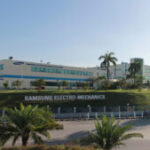Transport fares continue to fluctuate wildly across Lagos State, leaving commuters frustrated and struggling to plan their daily expenses. Fares increase from early morning to late evening, often without any prior notice, leaving many passengers stranded.
For Daniel Adeyemi, a regular commuter, navigating Lagos' unpredictable fare system has become a daily struggle.
He said, “Yes, I strategize while going out and try as much as possible not to come back late.”
“Fares increase mostly in the evening. Some drivers say it's because of traffic, some blame the price of fuel, while others simply insist they want to charge the same amount.”
Like many Lagosians, Adeyemi said he has learned to deal with the situation, even though it is taking a toll on his wallet.
“I am already facing it because it is normal in Lagos,” he said. “But the government should make a law that anyone charging more than the normal amount will have to face consequences.”
Another commuter, Solomon Tomiwa, who travels from Aja to Obalende, said frequent fare changes made it almost impossible to budget.
“It affects me a lot. I can't plan my transportation again,” he said. “From Ajah to Obalende it should be ₦1,200 or ₦1,500, but sometimes, I pay ₦2,000.”
While commuters often blame the fare hike for traffic congestion, transport operators blame rising petrol costs as the main reason. Since the fuel subsidy was removed, drivers say they have been forced to repeatedly adjust fares to keep up with volatile pump prices and rising vehicle maintenance costs.
Baba Junior, a commercial driver, said, “Whenever the price of fuel increases or becomes scarce, the transport fare automatically increases.”
“We buy fuel at different prices every week, and the cost of engine oil, spare parts and daily charges also keeps increasing.”
Economic analysts link the volatility in Lagos transport fares to Nigeria's broader macroeconomic challenges – particularly fuel price volatility, inflation and weak regulation.
“Fluctuations in transportation fares are a reflection of general instability in the economy,” said Ifeanyi Roland, an economic and policy analyst. “They often indicate rising inflation, volatile fuel prices and poor transportation infrastructure. When fuel or maintenance costs rise, operators quickly adjust fares to survive.”
Rowland said these fluctuations impact the economy, increasing the financial pressure on families.
“Unstable rents reduce workers' disposable income,” he said. “When people spend more on transportation, they have less to spend on food, rent, and other essentials. Over time, this increases the cost of living and creates more financial stress.”
He called for stronger government regulation and targeted support to stabilize the transportation sector.
“Government regulation and transparent pricing policies can help control fare volatility,” Rowland advised. “Subsidies, if managed properly, can ease the burden on both drivers and passengers, but they must be targeted at those who really need them.”
The analyst also stressed the need for long-term investments to make urban transportation more affordable and predictable.
“Nigeria must develop efficient public transport systems such as rail and modern buses,” he said. “Encouraging the use of alternative energy and promoting local fuel production will help. Once inflation is controlled and the Naira stabilises, transportation costs will naturally become more stable.”
At present, Lagos commuters are bearing the brunt of unpredictable fares. Whether short or long journeys to work, the cost of mobility remains a heavy burden – another indication of how fuel price volatility and economic pressures are reshaping daily urban life in Nigeria.










